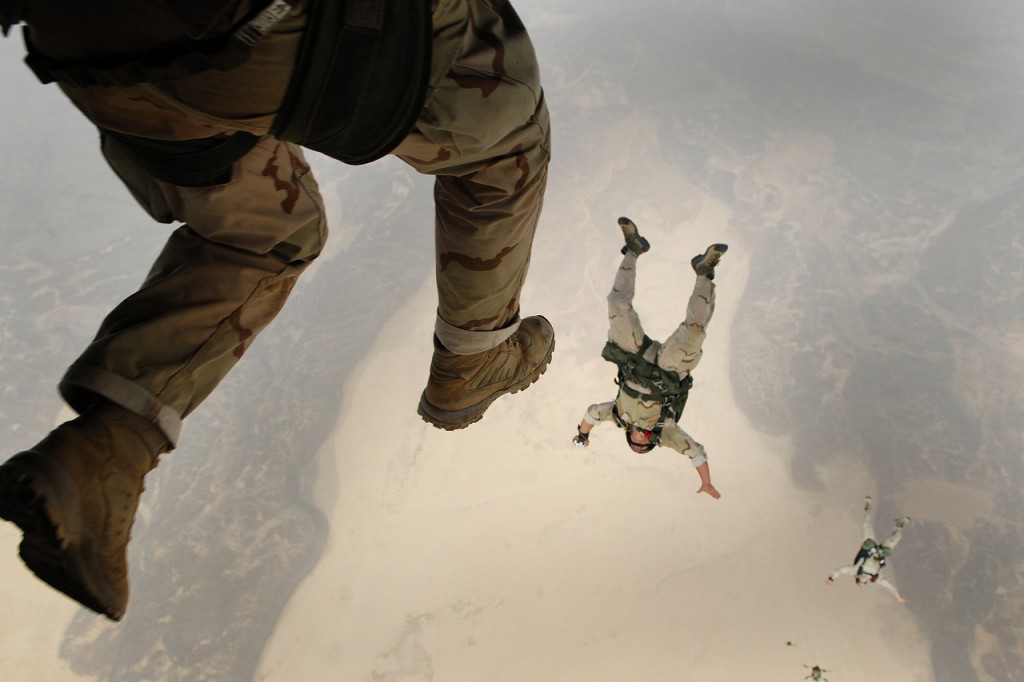Military Principles Significantly Complement Business Tactics, Says Straight-Talking Texas Entrepreneur
In many ways, the knowledge gleaned from attending an infantry school can be utilized by the aspiring entrepreneur, according to successful Texas businessman David M. Smith.
“The Army provided me with more fun and interesting experiences and principles than college. I spent a lot of time in the company of officers and immersing myself in reading military classics,” says Smith, author of “The Texas Spirit.”
“Most students in MBA programs nationwide will never have that military experience, which is why I’ve condensed what I’ve learned into 10 essential principles.”
Smith says the following aphorisms apply to both military and business endeavors.
• Take the offensive to win. Defense alone never wins. There have been numerous efforts in history to construct some form of “impregnable” defense that will withstand all invaders; ultimately, none were successful. Whether in war, sports or the business world, victory depends upon taking some kind of offensive initiative.
• When defense is necessary, fall back carefully, with a plan and while firing. Cancer, for example, is a war millions face. If a patient is to survive, he or she must take proactive measures – to fire and fall back – with treatments such as chemotherapy. In other words, your best defense is often your best offense.
• Be prepared to use your last option to decimate an invader, but only if you must. Infantry officers call it the FPL – final protective line, which acts like an overdrive on a vehicle. An FPL uses all weaponry to fire at once, continuously firing down a single pre-planned, narrow lane. Depending on the stakes, parties at a business negotiation, for example, should know their FPL option.
• The counterattack … Remember, the easiest time to resume the offensive is immediately. If you’ve been forced off a hill or into an undesirable position, regroup and counterattack!
• A good general always has enough troops. Whether you’re a general, lieutenant, private or middle manager – make sure you’re marshalling your resources wisely. For the layperson, that might translate to never making a purchase you can’t afford.
• Never take a weak front. In war, a weak front is often just a lure to tempt the opponent to attack; taking a weak front is like taking the bait in a trap. In business and in advertising, we are confronted with proposals that are too good to be true. Be skeptical of potential weak fronts.
• Never sleep while on guard duty. At Texmark Chemicals, sleeping, dozing, napping or drifting off is an unforgivable sin for a shift operator, which is the equivalent of guard duty during wartime. Vigilance is the key to surviving and winning war, even during lulls in the action.
• Do not heed the voices of caution too much. If the general listens mainly to the quartermaster, who is in charge of supplies, the army will never maneuver. While supplies are essential for survival, it is the risk takers who enjoy victory.
• Have a primary and a secondary objective. In a military unit or in a business team, you should have one clearly defined primary objective, understood by all persons in the unit. If a secondary objective is absolutely essential, it is better to have one preplanned, and not created during the heat of combat.
• “Clean the lint off the helix.” This quote refers to the screen on clothes dryers that catches lint and frequently needs to be cleared. Cutting corners, like overlooking the helix, can ruin an officer’s uniform – an important part of the military and business community. Little details are often very important; when overlooked they may have large consequences.
Find a Home-Based Business to Start-Up >>> Hundreds of Business Listings.

















































